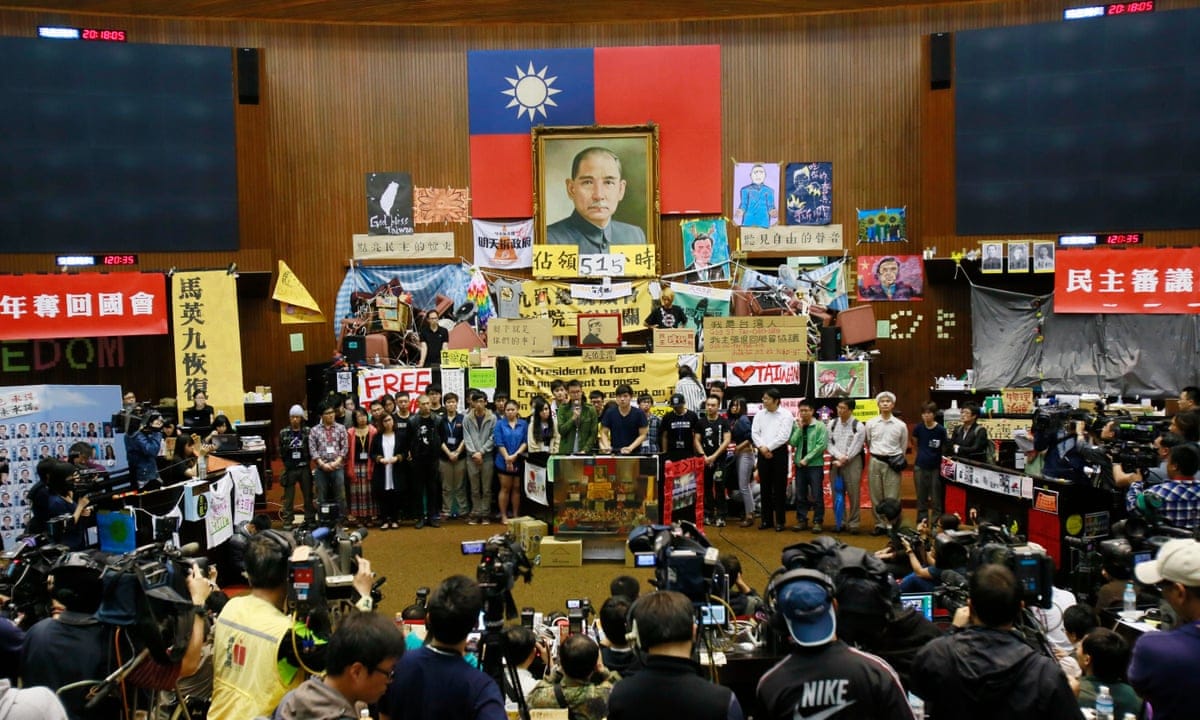How can we restore faith in governing bodies and politicians? Internationally, a mistrust crisis contributes to increasing populism. The UK's fresh administration has swiftly made policy announcements, with Keir Starmer, the leader of the government, focusing on "the fight for trust," an issue defining their political era.
Some believe that adherence to policies resulting in improved living standards is crucial while others point out Joe Biden's strong track record did not affect his political standing. Some suggest overhauling ethics and standard-setting rules, but there are nations where trust has surged remarkably - lessons can be learned from them.
In 2014, Taiwan had an approval rating of less than 10% for its government. Any proposed policies were met with distrust. However, following a protest involving civic hackers and digital democracy in March 2014 led to a drastic transformation - making it one of the most trusted governments globally today.
Post-protest, Taiwan's government invited the protestors to participate – some took on ministerial roles while others became participation officers, setting up an innovative Public Digital Innovation Space. One of these civic hackers, Audrey Tang, transitioned into a digital minister role. The subsequent years saw new approaches towards digital democracy including crowdsourcing pandemic responses and initiatives against deepfake misinformation on the internet.
Taiwan's technology-based tool Polis, which allows citizens to express their agreement or disagreement with statements while identifying common ground, has been successfully implemented in several regions like Grimsby, Lincolnshire. This approach contrasts traditional polling methods and promotes citizen trust. Taiwan's approval rating surged above 70% after Tang left her government post.
What can other countries learn from this? While efficient governance is essential, rebuilding the relationship between a state and its citizens is equally critical. Trust reciprocity plays a significant role in fostering it. In Taiwan's case, tech-driven digital democracy played an instrumental part. However, some of these principles can be applicable to other nations: open policymaking acknowledging that not all answers are found within the government; engaging citizens through real-life methods like citizen panels or assemblies, and maintaining a commitment to listening.
Demos, in partnership with Involve, has put forth suggestions on how governments can rebuild trust amidst today's challenges. Proposals include utilising citizens' panels for mission board contributions; holding citizens' assemblies for complex policy questions and moral dilemmas such as euthanasia or planning decisions, initiating community discussions, and incorporating public input into the design of new public services.
Citizen participation can assist in engaging communities amidst difficult trade-offs. For instance, with Britain's government promising to pass on controversial development plans without local support, involving citizens in planning processes could potentially ease this contentious issue. Despite Labour securing a significant majority, their MPs face challenges defending these narrow margins. To navigate such complexities, creating platforms for the public to participate and contributing to policy design can prove beneficial. The UK government's plans include setting up customer panels to examine water companies and incorporating public input in proposed changes to the House of Lords, which could signify an evolution towards a more collaborative democracy.
The opportunity for governments is there - like Taiwan, they can contribute significantly to combatting populism by restoring trust between political entities and citizens. However, it requires much more than just fulfilling promises or strengthening existing rules; it necessitates rebuilding the relationship with their constituents. As we say, when trust is given, it's likely returned.
Read next

Rafael Behr Predicts Starmer's UK Political Realities Will Face Turmoal Shakeup Soon
There's plenty happening politically across Britain, but change isn't sweeping through as expectedly or rapidly enough to shake things up significantly within Westminster news cycles. The government has struggled from its inception and a contest for Tory leadership continues to keep the political scene bustling on

Exploring Historical Solutions for Modern Global Water Conflicts: Insights from a Bygone Spanish Court | Roman Krznaric
Every Thursday at noon, outside Valencia’s cathedral, nine cloaked figures gather beneath its west door – one distinguished by their banded cap and ceremonial harpoon. This weekly assembly marks the enduring presence of the Tribunal de les Aigües (Tribunal of Waters), potentially Europe's oldest court of justice.
For

Potential Deepfake Impact on Future Elections: Will 2024 Mark a Turning Point for Authenticity Concerns? | Samantha Floreani
As long as the phenomenon of artificially generated or altered content depicting false events has existed in politics, concerns have been raised about its implications for public discourse and democracy since at least 2018. This was demonstrated when a deepfake video surfaced that falsely portrayed former President Obama insulting then-President

